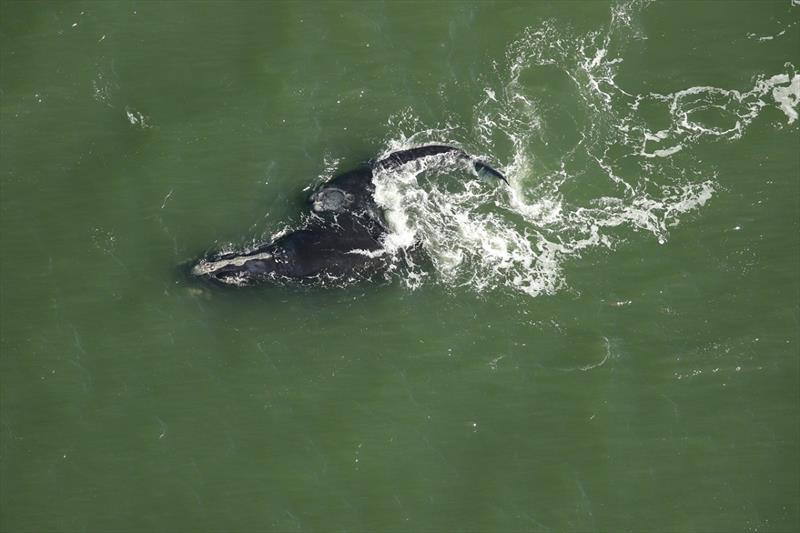
U.S. & Canada must sustain additional efforts to reduce North Atlantic Right Whale mortalities
by NOAA Fisheries 1 Feb 2020 16:15 UTC

A North Atlantic right whale calf swims with its mother off the coast of Florida © FWC, under NOAA permit #20556-01
A message from NOAA Fisheries Assistant Administrator Chris Oliver, who recently participated in a meeting with Canadian officials focused on the conservation and management efforts for the endangered North Atlantic right whale.
Last Friday, we met once again with Canadian officials to continue our bilateral focus on the conservation and protection of North Atlantic right whales. The United States and Canada have a shared interest in recovering right whales, and it is critical for both countries to take and sustain additional efforts to reduce right whale mortalities and serious injuries. As most people know by now, maintaining the protection and conservation of these critically endangered whales is especially important given the reduced rate of calving, the rapid decline in the population in just a few years, and the evidence of a continued high rate of mortality.
Officials from Fisheries and Oceans Canada and Transport Canada joined me, Sam Rauch, our agency's Deputy Assistant Administrator for Regulatory Programs, and Mike Pentony, our Regional Administrator for the Greater Atlantic Regional Fisheries Office for this meeting in Ottawa. The format was similar to the meeting we had with the Canadians last August, when both countries agreed to redouble efforts to share innovative techniques and solutions that foster healthy fisheries, reduce the risk of entanglements, and create whale-safe shipping practices.
What we focused on in these discussions were our near-term commitments, including:
- Entanglement risk reduction in Northeast trap/pot gear to reduce serious injury and mortality to less than one per year.
- Analyzing alternatives that reduce the number of lines and the strength of the line and, possibly, new seasonal closed areas.
- Continuing discussions of additional measures both countries can take throughout the species' range to further reduce risks.
We emphasized that NOAA, the coastal states and U.S. fishermen have been involved in mitigating commercial fisheries interactions with Atlantic large whales for over twenty years, and we will continue to do that. We dove deep into each of the points above, especially our effort to develop measures to reduce the risk to right whales from entanglements in trap/pot fisheries—with a target of 60 percent reduction based on the near-consensus recommendations from the Atlantic Large Whale Take Reduction Team—to get to a sustainable level of less than one seriously injured or killed right whale a year by entanglement. We urged Canada to develop a similar goal and appropriate risk reduction measures to achieve it.
It is critical that both the United States and Canada implement sustainable, long-term measures to turn the population trajectory of right whales upward and recover this species. I left these most recent discussions feeling positive about the effect of these bilateral efforts in achieving our shared goals of conserving and restoring this species. The U.S. industry, especially the commercial fishing industry, cannot carry the full burden of these efforts. It has to be a shared responsibility. Our partners and stakeholders continue to look to the U.S. and Canadian governments to save this critically endangered species, and we need to deliver.